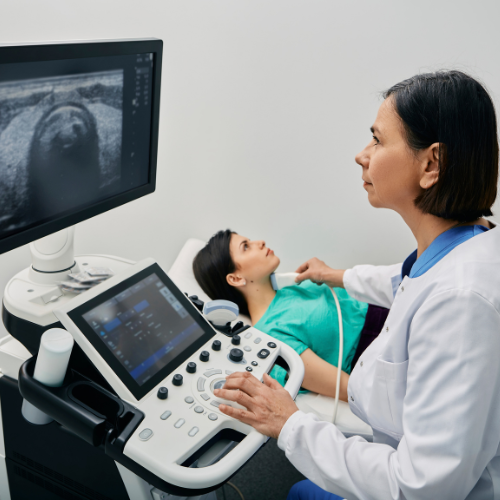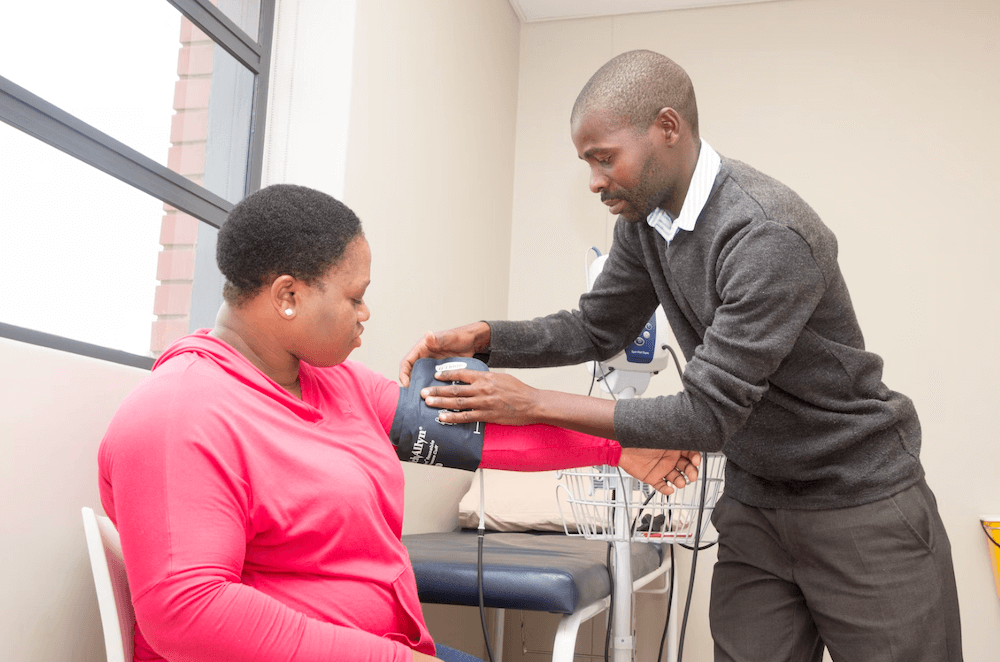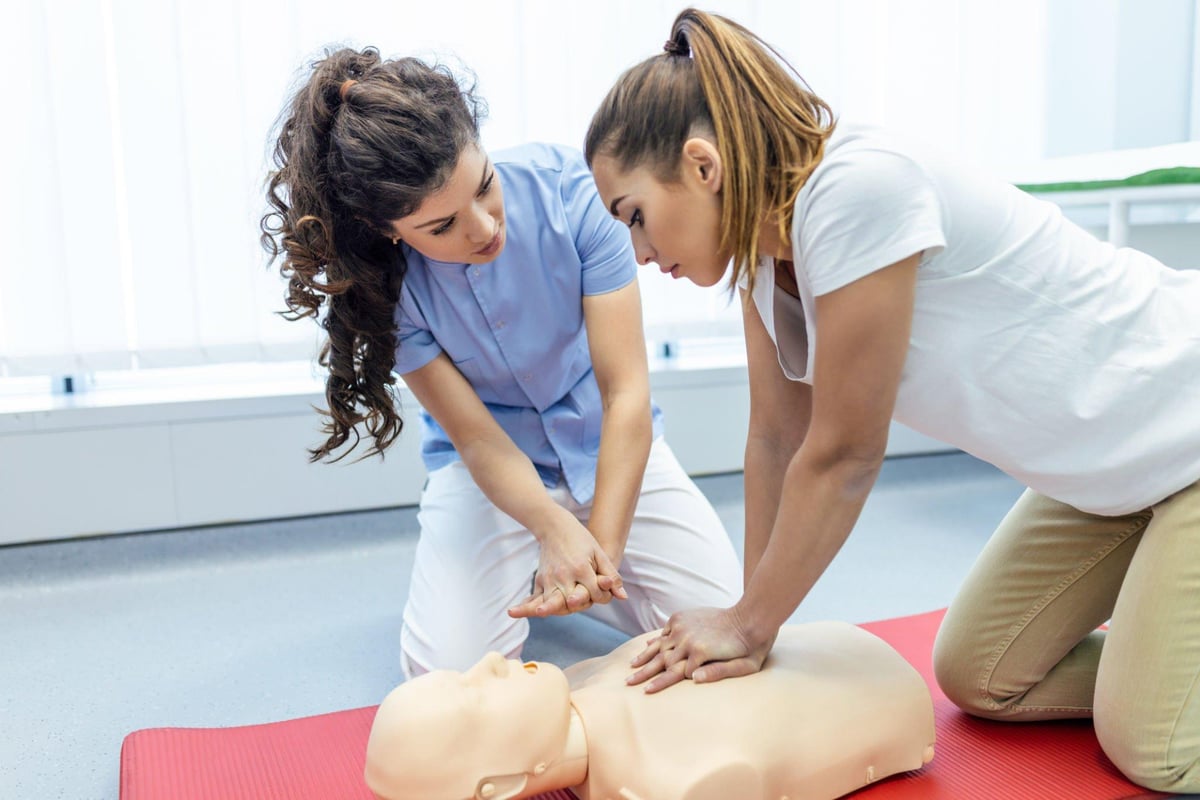Neosho County Community College

Classes from NCCC
Occupational Therapy Assistant

The Occupational Therapy Assistant (OTA) works under the direction of an Occupational Therapist to provide rehabilitative services to persons with mental, physical, emotional or developmental impairments with the ultimate goal to improve the client’s quality of life and ability to perform daily activities. Graduates of the program will be eligible to sit for the national certification examination for the occupational therapy assistant administered by the National Board for Certification in Occupational Therapy (NBCOT). After successful completion of this exam, the individual will be a Certified Occupational Therapy Assistant (COTA). In addition, most states require licensure in order to practice; however, state licenses are usually based on the results of the NBCOT Certification Examination. Note that a felony conviction may affect a graduate’s ability to sit for the NBCOT certification examination or attain state licensure.
Nursing

The Nursing degree prepares the student to sit for the NCLEX-PN and RN exams. Following successful completion of the appropriate NCLEX exam, the graduate is able to practice as a Licensed Practical Nurse (after the first three semesters of the program) and as a Registered Nurse (after completing the second year of the program to earn the AAS degree). The first and second levels of the Nursing program are offered on both of our main campuses, located in Chanute and Ottawa, Kansas. Application to NCCC must be made prior to application to the Nursing program. Students successfully completing the first level receive a LPN certificate and sit for the LPN board exam. Students successfully passing the LPN board exam will gain LPN licensure and have the option to continue their education as Level II students. Level II courses are offered in Chanute or Ottawa and in a hybrid format. Students who successfully complete second level courses receive an Associate of Applied Science degree, making them eligible to sit for the RN board exam.
In person Medication Aide Classes

This course includes the study of medications and their physiological effect on the body. Emphasis will be placed on the identification and abbreviations of drugs, weights and measures, and procedures used in dispensing medication. The curriculum is approved by the Kansas Department of Aging and Disability Services/Health Occupations Credentialing-KDADS/HOC. CMA may not be eligible for federal financial aid.
Prerequisite: Must be a Kansas State Certified Nurse Aide. Students must be able to read at KDADS/HOC specified reading level. The student must be 18 years of age by the end date of the course and to be certified as a medication aide.
The medication aide certificate is valid for two years from the date issued. To maintain a valid certificate, the CMA must complete, at any time during those two years, a program of 10 hours of continuing education approved by the certifying agency. Students must be 18 years old to take the state exam.
Diagnostic Medical Sonography

Currently offered at our Ottawa campus, Diagnostic Medical Sonography is a profession that provides patient care services using ultrasound and related diagnostic procedures. The diagnostic medical sonographer must be educationally prepared and clinically competent before entering the workforce as a practitioner. The diagnostic medical sonographer works under a physician and does not practice independently. Diagnostic medical sonographers are committed to patient care and continued improvement. They use independent judgement and must adhere to strict professional and ethical standards. Critical thinking skills are essential for this profession.
Surgical Technology

The Surgical Technology program trains students at the Ottawa campus to become entry level surgical technologists. Surgical technologists are integral members of the surgical team who work closely with surgeons, anesthesia care providers, registered nurses and other surgical personnel delivering patient care before, during and after surgery. This program prepares the student for national certification testing. Surgical technologists handle instruments, supplies and equipment necessary during the surgical procedure. They have an understanding of the procedure being performed, anticipate the needs of the surgeon and perioperative team members, and have the necessary knowledge and ability to ensure quality patient care during the operative procedure while monitoring and preserving the sterile field. The proficient surgical technologist demonstrates a caring attitude towards the patient, other surgical team members, and the patient-care environment. It is necessary to understand normal anatomy and physiology, the pathological condition affecting the patient, the planned operative procedure, and consider any variations that may be necessary to accommodate a specific patient. Surgical technologists fulfill a vital role in the O.R., but are not to be confused with registered nurses. A proficient surgical technologist is critical to the operative team, and the success of the patient's surgical outcome. Employment in surgical technology is expected to grow as the volume of surgeries increase, and technological advancements require expert assistance during those surgical procedures. Hospitals continue to be the primary employer of surgical technologists, although other career options include physicians’ office assistant, obstetrical unit technician, and outpatient care centers, including ambulatory surgical centers, sterile supply management and/or technician, surgical supply representatives, and surgical technology education. Students at NCCC receive in-depth practical knowledge and substantial clinical education related to the O.R. If Surgical Technology sounds like a career for you, please contact us about enrolling in our survey course, SURG 100 Introduction to Surgical Technology. (Must be at least 18 years old; program application is not necessary.)
Mathematics

The Associate of Science with an emphasis in Mathematics is a two-year degree for students who intend to transfer to a university to complete a mathematics or mathematics education degree. NCCC’s Mathematics program offers undergraduate training in intermediate algebra, college algebra, trigonometry, statistics, analytic geometry, calculus, real number system, matrix algebra, and differential equations. As a mathematics student at NCCC, you will be exposed to the principles which underlie the concepts of mathematic equations and problem solving. You may also engage in study that is tailored to meet specific needs and interests, which means you can gain a deeper understanding of the area that most interests you. Because the size of NCCC math classes is small, the faculty will get to know you as a person. They will not only show you the joys of exploring mathematics, but they will also help you work toward future career and educational opportunities. NCCC math courses are offered on both the Ottawa and Chanute Campus. Evening classes meet once a week starting at 4:00pm and 6:45pm. Day sections are also available. Ottawa is an easy 30-minute drive from Lawrence.
In person Phlebotomy Classes

Phlebotomy Technician Training Program at Neosho County Community College
The Phlebotomy Technician Training Program at Neosho County Community College offers a transformative educational experience designed to equip you with the essential skills for a rewarding career in healthcare. This 16-credit hour certificate program, delivered in a flexible hybrid format, focuses on practical proficiency and competence. Benefit from a personalized education with a professional adjunct team and a low student-to-faculty ratio, ensuring you receive individualized attention and support. Upon successful completion, you'll be guaranteed eligibility for the American Society for Clinical Pathology's Phlebotomy Technician Examination, setting you on a path to immediate career success.
Program Details:
- Cost: The total in-state cost is $2,805.00.
- Duration: 16-credit hour certificate program.
- Schedule: Delivered in a hybrid format, combining both in-person and online instruction.
- Prerequisites: Complete the NCCC admission form, submit a statement of general health within 30 days, and meet any additional program-specific requirements outlined in the application.
- Accreditations: Accredited by the Commission on Accreditation of Allied Health Education Programs (CAAHEP).
- Career Outcomes: Guarantees eligibility for the American Society for Clinical Pathology's Phlebotomy Technician Examination upon successful completion.
Computer Information Systems, AAS

The Associate of Applied Science in Computer Information Systems is a two-year degree for students who intend to seek immediate employment upon graduation. Career areas will depend upon which programming languages and recommended electives the student chooses and may include: computer programmer, data base administrator, office manager, web-page designer, and data entry clerk.
LPN-RN

The LPN to RN Completion Program is designed for the Licensed Practical Nurse who is returning to college in order to transition into the role of the Registered Nurse. The Introduction to Associate Degree Nursing course is offered in the hybrid format in the summer, which requires limited visits to the Ottawa campus. Students who successfully complete this course are transitioned into Level II courses (Associate Degree level). Level II courses are offered in Chanute or Ottawa and in a hybrid format. First steps for entry into this program include:
- Attending a mandatory informational meeting. 2. Applying to NCCC.
- Reviewing the Bridge To-Do List.
Marketing, AAS

The Associate of Applied Science in Marketing is a two-year degree for students who intend to seek employment upon graduation rather than transfer to a university. Level I certification exposes students to fundamental marketing concepts. Level II certification provides more in depth marketing content. Career areas may include: office manager, assistant personnel manager, wholesale and retail sales, service manager, warehouse manager, assistant purchasing agent, media specialist, and real estate salesperson.
Paralegal AAS

This program prepares students for a successful career as a paralegal. Paralegals perform delegated legal work such as drafting documents, conducting legal research, interviewing and investigating and assisting attorney with a variety of tasks. According to the Kansas Occupational Projections 2016 - 2026 there is an expected growth of 19.9% in the paralegal field and a median wage of $40,035.
Students entering the program with an associate of arts, associate of science, or bachelor degree from an accredited college, or who desire only to obtain the certificate will take the Paralegal Certificate pathway. Students without a degree who desire a degree will be on the Associate of Applied Science Degree in Paralegal pathway.
Upon successful completion of the course requirements with a grade of a “C” or better in the paralegal certificate courses, students will be eligible to apply for one of two national examinations. Those examinations are:
National Association of Legal Assistants, Inc. exam to become a Certified Paralegal (CP), or
NALS … the association for legal professionals’ exam to become a Professional Paralegal (PP) or Accredited Legal Professional (AL)) or a Certified Legal Professional (CLP).
Students will have the opportunity to become members of the Heartland Paralegal Association (HPA) which is a not-for-profit professional organization dedicated to the advancement of the paralegal profession.
Diagnostic Medical Sonographer, AAS

Currently offered at our Ottawa campus, Diagnostic Medical Sonography is a profession that provides patient care services using ultrasound and related diagnostic procedures. The diagnostic medical sonographer must be educationally prepared and clinically competent before entering the workforce as a practitioner. The diagnostic medical sonographer works under a physician and does not practice independently. Diagnostic medical sonographers are committed to patient care and continued improvement. They use independent judgement and must adhere to strict professional and ethical standards. Critical thinking skills are essential for this profession.
In person Welding Classes

The Welding program allows students the opportunity to complete certificates at two levels and to transfer these certificates toward an Associate of Applied Science degree in Industrial Engineering Technology. The Level I Welding Certificate is for students who intend to seek entry-level employment after completing a one-year program of study. The Level II Certificate is for students interested in advancing their skill level beyond Level I.
The curriculum fulfills the guidelines of Excel in Career and Technical Education, which provides students with a technical education background to prepare them for college and a career. Students will learn GMAW, GTAW, SMAW, FCAW processes as well as various cutting processes. First-year students will take part in the American Welding Society (AWS) 1G, 2G, 1F, and 2F Welder Procedure Qualification Records (WPQR). Second-year students will participate in AWS 3G, 4G, 3F, and 4F Welder Procedure Qualification Records (WPQR).
Advanced students will also have a chance to participate in (AWS/API/ASME) 6G. These qualification records will demonstrate that a student possess the knowledge to perform industry standard weld procedures that readily translate to the workplace. Careers in welding include welding, cutting, soldering, and brazing in the construction, manufacturing and utilities industries. Specific job titles include welding technician, supervisors, inspectors, instructors, and shop owners. The job outlook for welders in the construction, manufacturing, and utilities industries is increasing.
In person Medical Assistant Classes

The Medical Assistant certificate program prepares students to be proficient in the clinical and administrative tasks of the profession. Upon successful completion of this program, the student will have the skills required to obtain an entry-level position in the medical assisting profession and sit for the RMA (Registered Medical Assistant) examination through the American Medical Technologists (AMT).
Hybrid Associate Degree in Nursing (ADN) Classes

The first and second levels of the Nursing program are offered on both of our main campuses, located in Chanute and Ottawa, Kansas. Application to NCCC must be made prior to application to the Nursing program. Students successfully completing the first level receive a LPN certificate and sit for the LPN board exam.
Students successfully passing the LPN board exam will gain LPN licensure and have the option to continue their education as Level II students. Level II courses are offered in Chanute or Ottawa and in a hybrid format. Students who successfully complete second level courses receive an Associate of Applied Science degree, making them eligible to sit for the RN board exam.
Hybrid Licensed Vocational Nurse (LVN/LPN) license Classes

The first and second levels of the Nursing program are offered on both of our main campuses, located in Chanute and Ottawa, Kansas. Application to NCCC must be made prior to application to the Nursing program. Students successfully completing the first level receive a LPN certificate and sit for the LPN board exam.
Students successfully passing the LPN board exam will gain LPN licensure and have the option to continue their education as Level II students. Level II courses are offered in Chanute or Ottawa and in a hybrid format. Students who successfully complete second level courses receive an Associate of Applied Science degree, making them eligible to sit for the RN board exam.
In person HVAC Classes

The HVAC program offers a certificate and/or an Associate of Applied Science degree in Heating, Ventilation, and Air Conditioning Technology. The first two semesters cover the electrical and heating side of HVAC. Later semesters cover the refrigeration and airflow side of the HVAC trade.
The program utilizes the National Center for Construction Education and Research (NCCER) curriculum. NCCER is a nationally-recognized credentialing and certification system. Students completing the first two semesters will cover NCCER Core and Level 1. The remaining semesters cover NCCER Levels 2, 3, & 4.
Careers include service, installation, and sales of HVAC equipment for residential and commercial applications. Students may enter the industry in facility maintenance, manufacturing and utilities industries. Job titles include service technician, installation technician, supervisors, inspectors, independent contractors and small business owners. The job outlook for HVAC technicians in the construction, manufacturing, and utilities industries is increasing.
Plumbing certificate

The Plumbing certificate program is a 21-credit hour program that includes theory and hands-on application. The program prepares students to take the Journeyman Plumbing exam. In Kansas, individual cities and counties issue licenses for plumbers. Check in your local area to determine specific licensing requirements. Two years of field experience under the supervision of a licensed journeyman or master plumber is required to sit for the journeyman license exam in Kansas. This program prepares you with the technical skills necessary to work efficiently under a journeyman or master plumber.
The program utilizes the National Center for Construction Education and Research (NCCER) curriculum. NCCER is a nationally recognized credentialing and certification system. Students completing the program will cover NCCER Core and Plumbing Level 1. Successful students will also obtain OSHA 10 certification.
Plumbers assemble, install, or repair pipes, fittings, or fixtures of heating, water or drainage systems in homes and businesses according to the International Plumbing Code. Students may enter the industry with journeyman skills, ready to perform on-the-job training in preparation for licensure. US Department of Labor, Bureau of Labor Statistics indicates employment of plumbers is expected to grow 16 percent (much faster than average) from 2016 to 2026. The median annual wage for plumbers was $51,450 in May 2016.
In this program, students will learn about the plumbing trade including an overview of the profession, safety, plumbing tools, plumbing math, and blueprints. Students will learn about plastic, copper, cast-iron, and carbon steel plumbing materials and the differences of each. Students will have hands-on experience with fixtures, drains, waste, vent systems and water distribution systems.
Surgical Technology AAS

The Surgical Technology program trains students at the Ottawa campus to become entry level surgical technologists. Surgical technologists are integral members of the surgical team who work closely with surgeons, anesthesia care providers, registered nurses and other surgical personnel delivering patient care before, during and after surgery. This program prepares the student for national certification testing.
Surgical technologists handle instruments, supplies and equipment necessary during the surgical procedure. They have an understanding of the procedure being performed, anticipate the needs of the surgeon and perioperative team members, and have the necessary knowledge and ability to ensure quality patient care during the operative procedure while monitoring and preserving the sterile field.
The proficient surgical technologist demonstrates a caring attitude towards the patient, other surgical team members, and the patient-care environment. It is necessary to understand normal anatomy and physiology, the pathological condition affecting the patient, the planned operative procedure, and consider any variations that may be necessary to accommodate a specific patient.
Surgical technologists fulfill a vital role in the O.R., but are not to be confused with registered nurses. A proficient surgical technologist is critical to the operative team, and the success of the patient's surgical outcome.
Employment in surgical technology is expected to grow as the volume of surgeries increase, and technological advancements require expert assistance during those surgical procedures. Hospitals continue to be the primary employer of surgical technologists, although other career options include physicians’ office assistant, obstetrical unit technician, and outpatient care centers, including ambulatory surgical centers, sterile supply management and/or technician, surgical supply representatives, and surgical technology education.
Associate degree in Business Administration

The Associate of Science with an emphasis in Business Administration is a two-year degree for students who intend to transfer to a university upon graduation from NCCC. Upon transfer, chosen majors may include accounting, business administration, management information systems, Entrepreneurship, Human Resources, and International Business economics, finance, management, or marketing.
Healthcare Information Technology, AAS

The Health Information Technology program trains health information technicians to provide reliable and valid information that drives the healthcare industry. The program utilizes standards established by the American Health Information Management Association to train entry-level technicians to effectively work with health information systems, manage medical records, and code information for reimbursement and research. Students will leave the program with the knowledge and skills necessary to use, analyze, present, abstract, code, store and/or retrieve healthcare data for the support of departmental operations, and clinical and business decision making in healthcare or related organizations. Employment is available in a variety of settings including hospitals, managed care organizations, long-term care facilities, consulting and law firms, skilled nursing facilities, physician practices, insurance companies, and more. In addition, graduates of associate degree programs in HIT may transfer into HIA baccalaureate degree programs, known as health information administrators. NCCC’s HIT program is accredited by the Commission on Accreditation for Health Informatics and Information Management Education (CAHIIM). Accreditation was obtained on November 13, 2009. All courses listed on the recommended sequence of courses (or equivalent courses transferred from other institutions) are required for the completion of the program.
In person Emergency Medical Technician Classes

This course is designed for individuals interested in providing medical care to patients in the pre-hospital setting. It will provide the participant with opportunities to gain information, skills and attitudes necessary for certification and practice as an Emergency Medical Technician (EMT) in the State of Kansas. The candidate must be 17 years of age to challenge the EMT state board exam. Note: EMT courses are not eligible for federal financial aid. The EMT course may be offered for 16 weeks (or more).
In person IT Support Classes

The Associate of Applied Science in Computer Support Specialist is a two-year degree for students who intend to seek immediate employment upon graduation. The Computer Support Specialist installs, maintains, and repairs computer hardware, software, and networks, and provides support services to system users. Duties of a computer support specialist typically include the diagnosis of system hardware and software failures and the performance of actions necessary to correct such problems.
In person Certified Nursing Assistant Classes

This course includes a study of the aging process and its related conditions and the nursing skills required in assisting geriatric residents to reach and maintain their highest level of wellness consistent with the limitations imposed by the aging process. This 90-clock-hour course includes 45 hours of theory, 20 hours of lab, and 25 hours of supervised clinical experience in a long-term care facility. This course prepares students for the Certified Nurse Aide Exam. Note: This class may not be eligible for Federal Student Aid. Please note the CNA course curriculum and each course is approved by the Kansas Department of Aging and Disability Services/Health Occupations Credentialing-KDADS/HOC.
About school
Neosho County Community College
Neosho County Community College is a public community college located in Kansas, USA, with campuses in Chanute and Ottawa, as well as a fully online campus. It offers accessible local and remote education options through dedicated student portals and multiple contact channels. The college is committed to preparing students for successful careers or further education through innovative programs, fostering a personalized education experience with a student-to-faculty ratio of 11:1, and providing a variety of student clubs, organizations, and athletic teams.
Highlights:
- Innovative programs preparing students for successful careers or further education
- Honors outstanding alumni with a Distinguished Alumni award
- Personalized education with fully qualified faculty who know students by name
- Student-to-faculty ratio of 11:1
- Variety of 22 clubs and organizations along with 11 athletic teams
In the Chanute, KS area
800 W Fourteenth St, Chanute, KS 66720